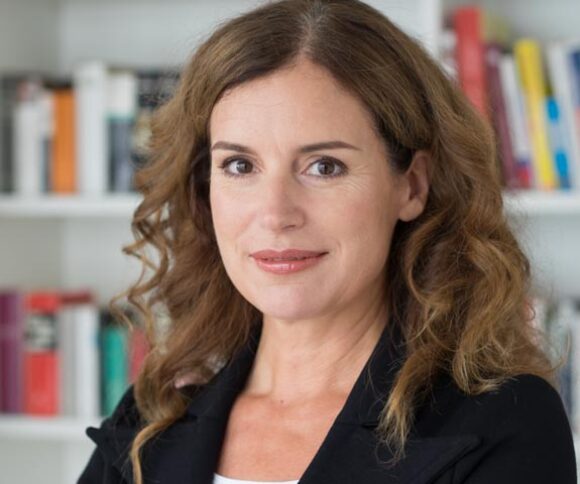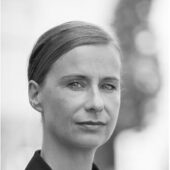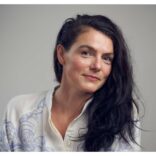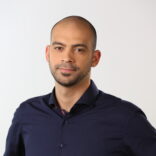
Interview with Organizational Consultant Franziska von Malaisé
Unlocking Female Leadership Potential
No outer transformation without inner work – through HHL’s Leadership Coaching program, New Leipzig Talents (NLT) students receive guidance from a coach in the early stages of their studies. The program focuses on the Leipzig Leadership Model (LLM), working on interdisciplinary competencies and fostering a developmental psychological perspective in coaching. NLT encourages individual and self-directed learning in leadership training. Personal development becomes part of the learning experience with topics and goals coming from the coachee.
The coaches in New Leipzig Talents engage with students on a voluntary basis. What drives them most is the delight of helping young people to grow. Their diverse approaches and experiences make the program so impactful. In an interview with Prof. Timo Meynhardt NLT coach Franziska von Malaisé talks about what she is passionate about in coaching. Franziska lives and works as an organizational consultant in Berlin. Her special interest lies in supporting female leadership.
Ultimately, coaching is always a purposeful encounter between two individual people, regardless of gender.
Do women coach differently?
I realize that this question triggers me because it supports cliché thinking. In my perception, every person is different and unique, which is reflected in all areas of life, also in the way we accompany and advise other people. Ultimately, coaching is always a purposeful encounter between two individual people, regardless of gender.
I take your point about two people meeting each other. However, according to a recent study, female leaders are more likely to show coaching behavior than their male colleagues and are also more willing to talk about prejudices in coaching. How did you get into coaching yourself, what was your motivation?
Since we are just talking about gender behavior: My decision to accompany and advise people was actually inspired by a man. Or more accurately, by my reaction to a social behavior that I often observe in men: I remember a dinner with a board member, where, after a short talk about business, my counterpart began to over-emphasize his exploits and achievements. After what felt like two hours, I stopped him and bluntly told him which unpleasant feelings his monologue had triggered in me. He looked at me, puzzled, thought about it for a second and said, “You’re a born coach, you should make that your profession.” That’s how it all started. I am still grateful to him that he had realized my potential before I did.
What happened then, after you´d realized this potential?
I thoroughly trained myself on the basis of my previous professional experience, especially in group dynamics, systemic counseling, mediation and constellations. I moved on to develop a consulting proposition that makes a real difference in the market, both on an organizational, team and individual level. In a way, I´ve developed my own distinctive signature over the years, also with regard to my view of women and their weak representation in German boardrooms.
That new way of looking at their own potential, their own attitude – that´s what changes everything.
What do you mean by a “real difference in the market”? What can women in particular expect in your coaching sessions?
They can expect to walk out feeling powerful inside, liberated and without a voice in their head telling them they can´t. Because their own mental barrier often impedes women from advancing themselves in their positions or from making it through the rooftop. That`s why I start by trying to make them aware of their own braking forces and to open up their imagination to new options for action. As strange as it may sound, that new way of looking at their own potential, their own attitude – that´s what changes everything. Most of these women are barely recognizable after just a few months.
That sounds like an inner liberation that sets free new energies. Can you give an example from your daily work? What was the situation? And what did you specifically do as a coach?
What I can say is that in my sessions, I create a space. That kind of space in a work environment which most companies try to avoid and in what they appear to invest a lot of time and money. That´s why my work generates so much power and movement in my clients and their companies. The rest is my trade secret!
More interviews with other NLT coaches
I’m really happy to be able to work with young talents in the NLT program and accompany them on their way toward a self-defined professional career.
Okay, that’s a tough message for companies to hear. No doubt, trade secrets are an incentive for research, because methodological transparency in coaching is central for us. Could you describe this space that you created? What does it involve? What can an NLT coachee expect from working with you?
I can see that you truly want to know… let me put it this way: Since Aristotle, we have known that we humans can be appealed to and convinced by three levels: Logos (intellect), Pathos (emotion) and Ethos (values).
I address precisely these three levels in my work. That creates a space where self-awareness and understanding are possible. In doing so, I follow a clear pattern: at the beginning, there is a comprehensive analysis of the current situation; based on this, a precise and at the same time differentiated set of goals and a concrete roadmap for achieving them are being developed. Progress and success are constantly monitored in a circular process. This way, I never look at just the individual person, I´m always also reflecting on the effect that changes in individual behavior have on the goals of the organization. Ultimately, it is a question of how people in organizations can reach their full potential.
As a full-time organizational developer, I’m really happy to be able to work with young talents in the NLT program and accompany them on their way toward a self-defined professional career.

Manager New Leipzig Talents





